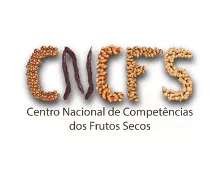General information
RDP Priority
- P5. Resource efficiency and climate
RDP Focus Area
- 5E: Carbon conservation & sequestration
RDP Measure
- M20: Technical assistance
Beneficiary type
- Non-profit organisation
Summary
The project developed a platform to commercialise by-products from the agricultural, agri-food and forestry sectors, including dried fruit, olive oil and tomatoes. This involved the creation of an observatory of results from national and international projects aimed at finding new applications for by-products from the aforementioned sectors. The project conducted a survey among the members of the previous CAP period’s National Rural Network (NRN) to identify and map the by-products with residual or even negative economic value resulting from their activities. In order to facilitate the transfer of knowledge, the project also organised periodic technology transfer sessions, highlighting new ways of making the most of by-products, and created a web-based platform that provides a meeting place for by-product producers and users.
Results
- The project published a series of four technical documents (available as a digital download or as a printed copy) titled 'creating value from agri-food and forestry by-products'.
- It promoted at least two national/international applications for financing new processes using by-products to create new products.
- The project participated in/co-organised at least four communication activities delivered within the context of an international conference on 'creating value from agri-food and forestry by-products'. At least 800 people participated.
- At least 7 000 users visited the project website and engaged with its social media communications.

Promoter
Centro Nacional de Competências dos Frutos Secos
Funding
- Total budget: 54 680 (EUR)
- EAFRD: 46 478 (EUR)
- National/Regional: 8 202 (EUR)
Resources
Documents
Context
In Portugal, agriculture, the agri-food sector and forestry produce a considerable volume of by-products that are usually discarded. However, there is great potential to use them in the production of other products. The potential for using these by-products depends on their availability (location, quality and quantity) and existing technologies for integrating them into new value chains. It also depends on the availability of technical and scientific knowledge, which is closely linked to process innovation.
Objectives
The aim of this project was to provide a platform for the valorisation of by-products from the agricultural, agri-food and forestry sectors.
Activities
Project activities included:
- Identifying and listing good examples of commercial use and recovery of by-products at national and international level. The selected examples were chosen because of their economic results in the agricultural, agri-food and forestry sectors as well as their potential applicability in Portugal.
- Evaluating the availability and quality of by-products generated in the dried fruit, olive oil, forestry, and tomato industries among the NRN members so that this information can be shared.
- Mapping the by-products of the agricultural, agri-food and forestry sectors to identify possible new applications and forms of valorisation, thus contributing to the 'Europe of efficient resources' mission.
- Identifying members of the NRN who can incorporate value into by-products as well as possible programmes to finance technological innovations, thus facilitating the reuse of and creation of value from by-products.
- Producing technical fact sheets, information bulletins and good practice manuals and disseminating them to beneficiaries.
- Organising technology transfer sessions including open days, conferences, seminars and symposiums. These events highlighted new ways of making the most of agricultural, agri-food and forestry by-products and the funding opportunities available through the Portuguese 2014-2020 Rural Development Programmes.
- Developing a web-based platform to provide a meeting place for by-product producers and users, which can facilitate the incorporation of the new technologies identified during the project.
- Evaluating the project's contribution to the emergence of new initiatives concerning the commercialisation of by-products from the agri-food and forestry sectors.
The project partners were the Centro Nacional de Competências dos Frutos Secos; Forestis - Associação Florestal de Portugal; Centro de Competências para o Tomate Industria; Instituto Politécnico de Bragança; Associação BLC3 - Campus de Tecnologia e Inovação and APPITAD – Associação de Produtores em Proteção Integrada de Trás-os-Montes e Alto Douro.
Main results
- The project published a series of four technical documents (available as a digital download or as a printed copy) titled "creating value from agri-food and forestry by-products".
- It promoted at least two national/international applications for financing new processes using by-products to create new products.
- The project participated in/co-organised at least four communication activities delivered within the context of an international conference on 'creating value from agri-food and forestry by-products'. At least 800 people participated.
- Promoted the 'Value+ platform' that brings together by-product producers and users.
- Participated in at least two international conferences, disseminating the results of the 'Value +: creating value from agri-food and forestry by-products' project.
- Created a system for evaluating the effects of the project’s digital communications (web, social media), which collectively reached an audience of over 7 000 hits.
Key lessons
- Commercial reuse of by-products from the Portuguese agri-food sector and forestry has a significant potential to contribute to the EU’s circular action plan, paving the way for a cleaner and more competitive Europe.
